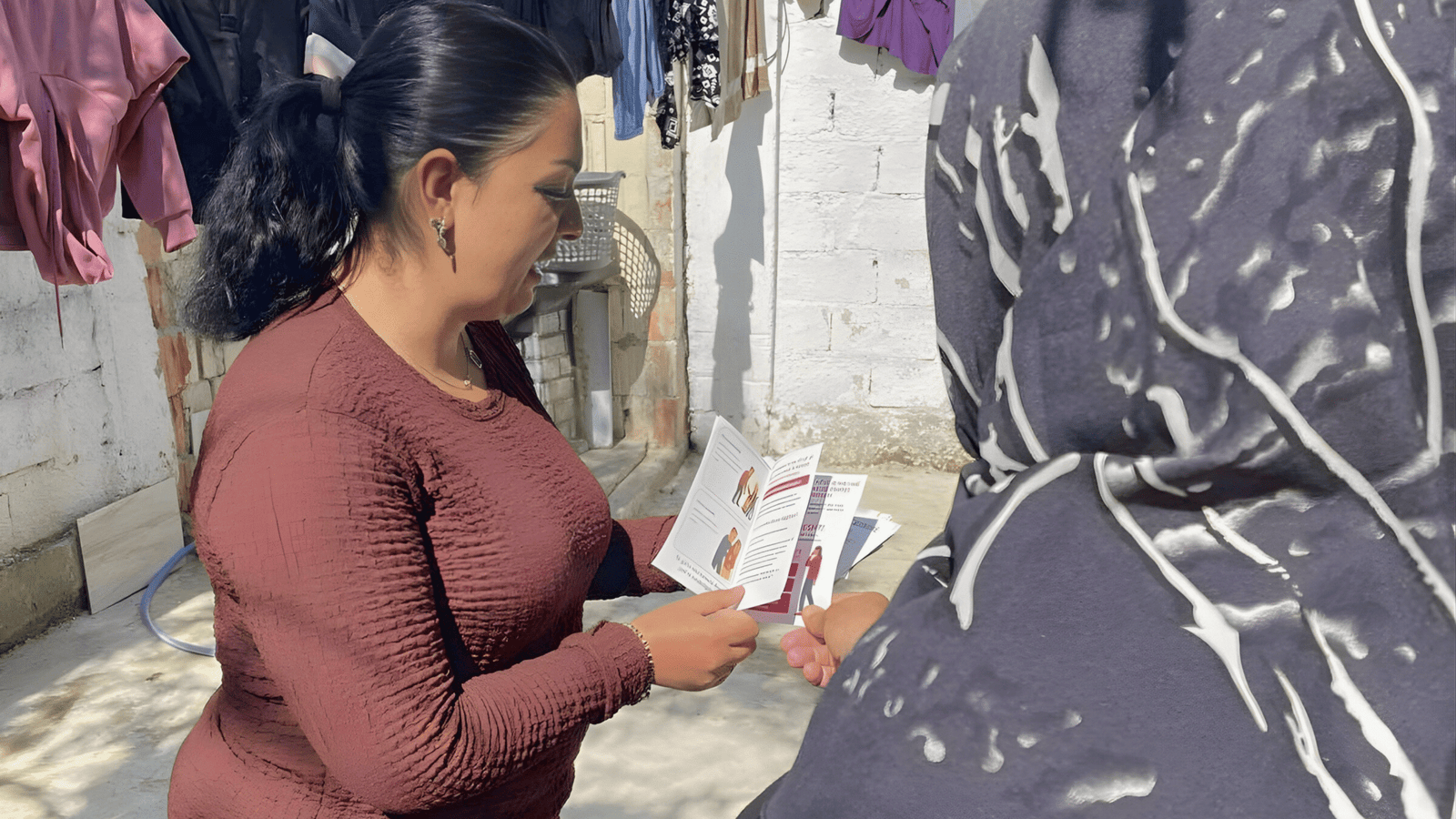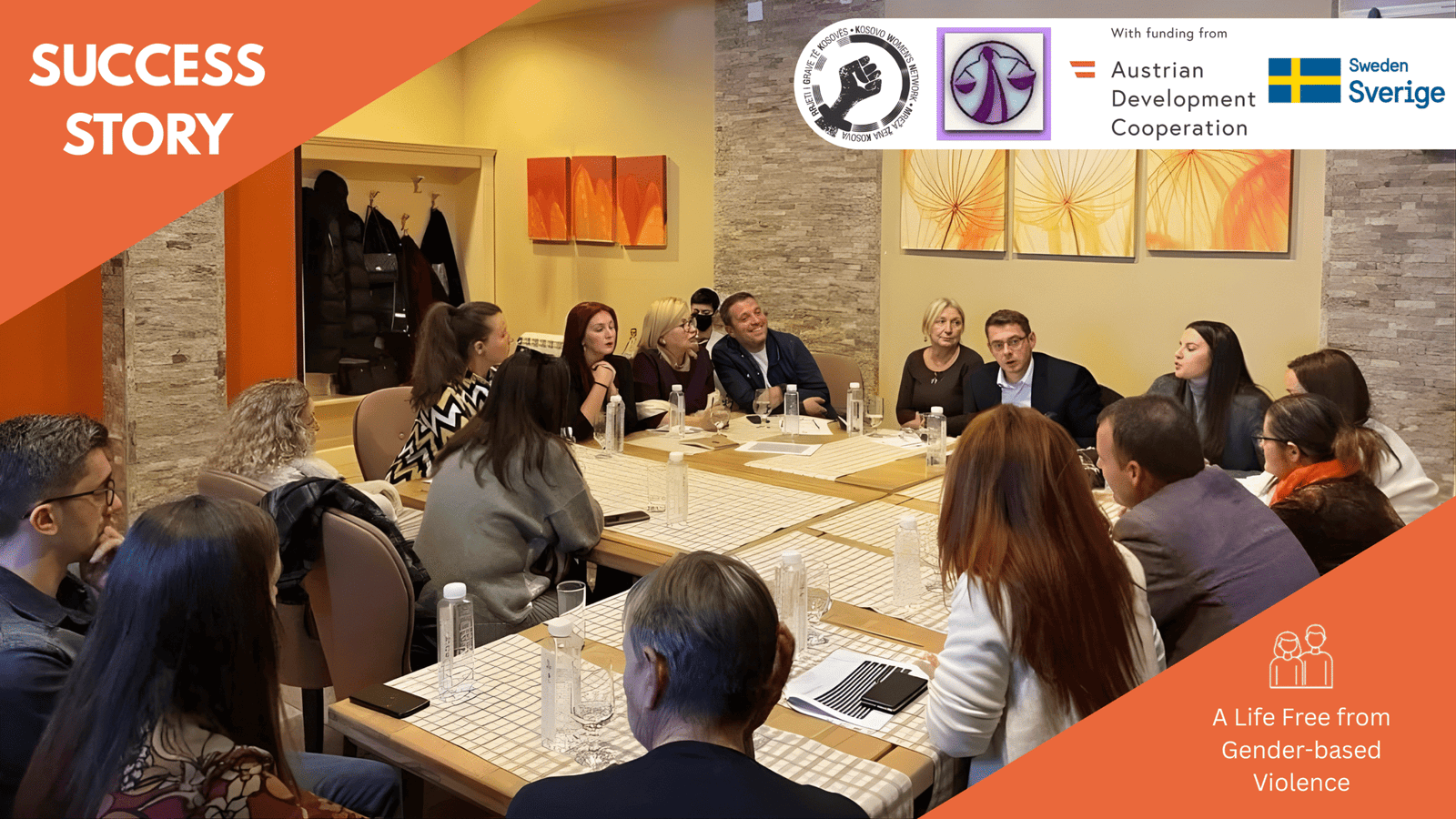On 21 Feb., a delegation of women’s rights activists from Western Balkan (WB) countries met representatives of the Swedish Ministry of Foreign Affairs in Stockholm, Sweden to discuss the situation of women’s rights activists in the region.
The timely meeting occurred in the context of the Ministry of Foreign Affairs designing their new Strategy for the WB. Activists encouraged the Swedish government to continue with its bold Feminist Foreign Policy and the priorities of its current Strategy, which remain very relevant: democratic accountability; increased trust and reconciliation; human rights, gender equality and non-discrimination; and a pluralistic civil society, particularly one that recognizes and includes women’s rights activists.
On behalf of the Kosovo Women’s Network (KWN), Nicole Farnsworth spoke about the importance of Sweden’s continued political support in promoting women’s rights as human rights in the region.
“Sweden has been among our greatest allies in pushing forward reforms over the last 10 years”, Farnsworth stated.
Sweden, through its embassies, the Swedish International Development Cooperation Agency (Sida) and the Kvinna till Kvinna Foundation, have provided important long-term political and financial support to women’s rights organizations, enabling them to bring about positive changes within their countries and communities.
Towards building resilient democracies, forging peace and furthering human rights, women’s rights organizations have been a leading force, sometimes among the only critical voices and watchdogs holding their governments accountable, Farnsworth said.
Maja Raicevic from Women’s Rights Centre in Montenegro explained, for example, that autonomous women’s rights groups play a crucial role in providing services to survivors of violence and meanwhile holding justice institutions accountable. Their work diagnoses serious issues with the justice system and state services, which then can be used to hold governments accountable.
Farnsworth later observed the many other roles women’s rights groups play, “We have contributed important research to inform democratic processes and new laws. Sometimes we have even written the laws and policies,” she said. “Women activists also have supported integrating a gender perspective in the EU accession process; raised awareness about democratic values and gender equality; facilitated public consultations and citizen engagement, particularly of women [and] built peace across divides,” she continued.
Despite these important developments, several challenges still exist in the region, which remains highly unstable, activists said.
“Democracy continues to be under threat amid patriarchy, nationalism and corruption,” Farnsworth said.
Marija Bashevska from Reactor in Macedonia spoke of the challenges of nationalism and its impact on women’s rights activists’ work, but also on individual women citizens.
Women’s voices are regularly left out of negotiations, Bojana Mumin from the Kvinna till Kvinna Foundation in Bosnia and Herzegovina explained. Snezana Jakovljevic from Sandglass organisation in Serbia similarly emphasized that women’s priorities have not been considered in the dialogue between Prishtina and Belgrade, a point that KWN often has reiterated.
Big political issues like border exchanges, threats of potential war and ongoing negotiations continue to dominate public space, activists said. By keeping the focus on these “political crises”, political leaders divert public attention away from the real issues that affect people’s everyday lives, like high unemployment rates, poverty, poor healthcare and weak education systems, all of which affect women in particular.
Moreover, perhaps since women’s rights activists often are among the few voices holding officials accountable, some activists have been declared “enemies of the state”. Activists shared stories of violence and threats against them, including by politicians who maintained full impunity; policies put in place and corrupt procurement practices that inhibit their access to resources and influence; and policies attempting to control women’s bodies amid nationalistic arguments of increasing natality rates.
Meanwhile, many foreign funders have stopped funding women’s rights organizations in the region, with the understanding that governments should take responsibility. However, this has not happened in practice. All of these issues, among others, have contributed to what has been termed the “shrinking space” for women’s rights activists.
In this context, Sweden’s continued political support in furthering women’s rights as human rights in the WB, including the simple act of standing physically beside women’s rights activists, is crucial support. As foreseen in the EU’s Gender Action Plan, this coupled with continued financial contributions to the work of autonomous women’s rights groups is a crucial investment in stability in the region and thus in Europe, activists argued.
“Sweden, through Sida and Kvinna till Kvinna, has been a role model among funders in providing long-term, flexible support that meets our needs and supports us in realizing our shared goals of strengthening democracy and furthering gender equality and human rights in our countries,” Farnsworth said. “We hope that direct support to women’s rights organizations and regional women’s funds, with their special approach, will enable us to continue pushing for key reforms.”
Representatives of the Ministry of Foreign Affairs thanked activists for sharing their experiences and emphasized that the support to women’s rights organizations will remain a priority for Sweden in the future.
This meeting was part of a trip supported by the Kvinna till Kvinna Foundation, during which women’s rights organisations from six WB countries also strategized for future joint advocacy initiatives: Albania, Bosnia and Herzegovina, Kosovo, Macedonia, Montenegro and Serbia. This represented a continuation of their lasting cooperation towards integrating a gender perspective in the countries’ EU Accession processes. Other KWN member organizations involved included Vetone Veliu from the Mitrovica Women’s Rights Association and Luljeta Demollli from the Kosovar Gender Studies Centre.
Women’s rights organizations in the region have collaborated in forging peace across ethnic, national, age and other divides since the 1990s. The Kvinna till Kvinna Foundation has been one of their longest partners.







